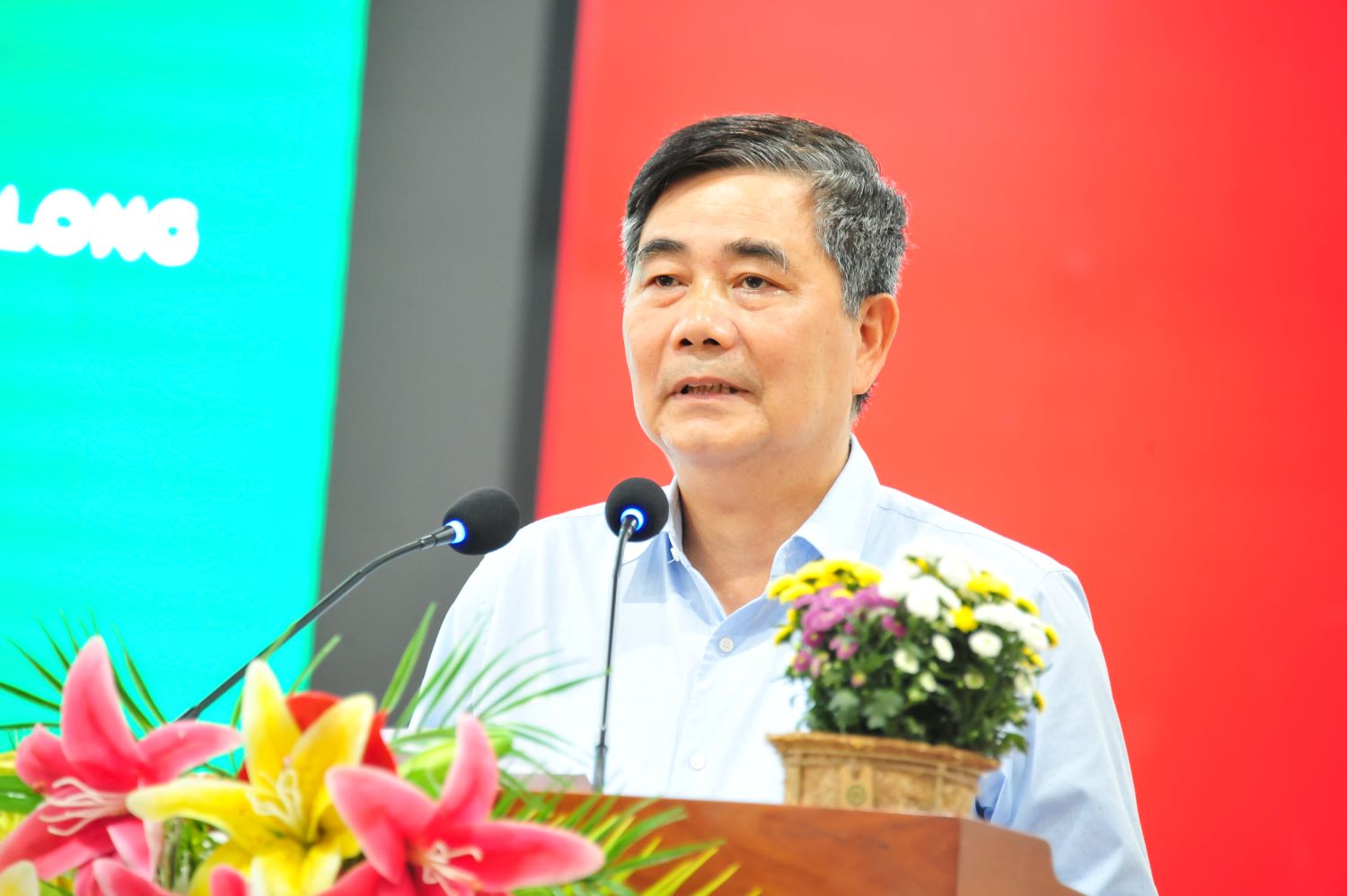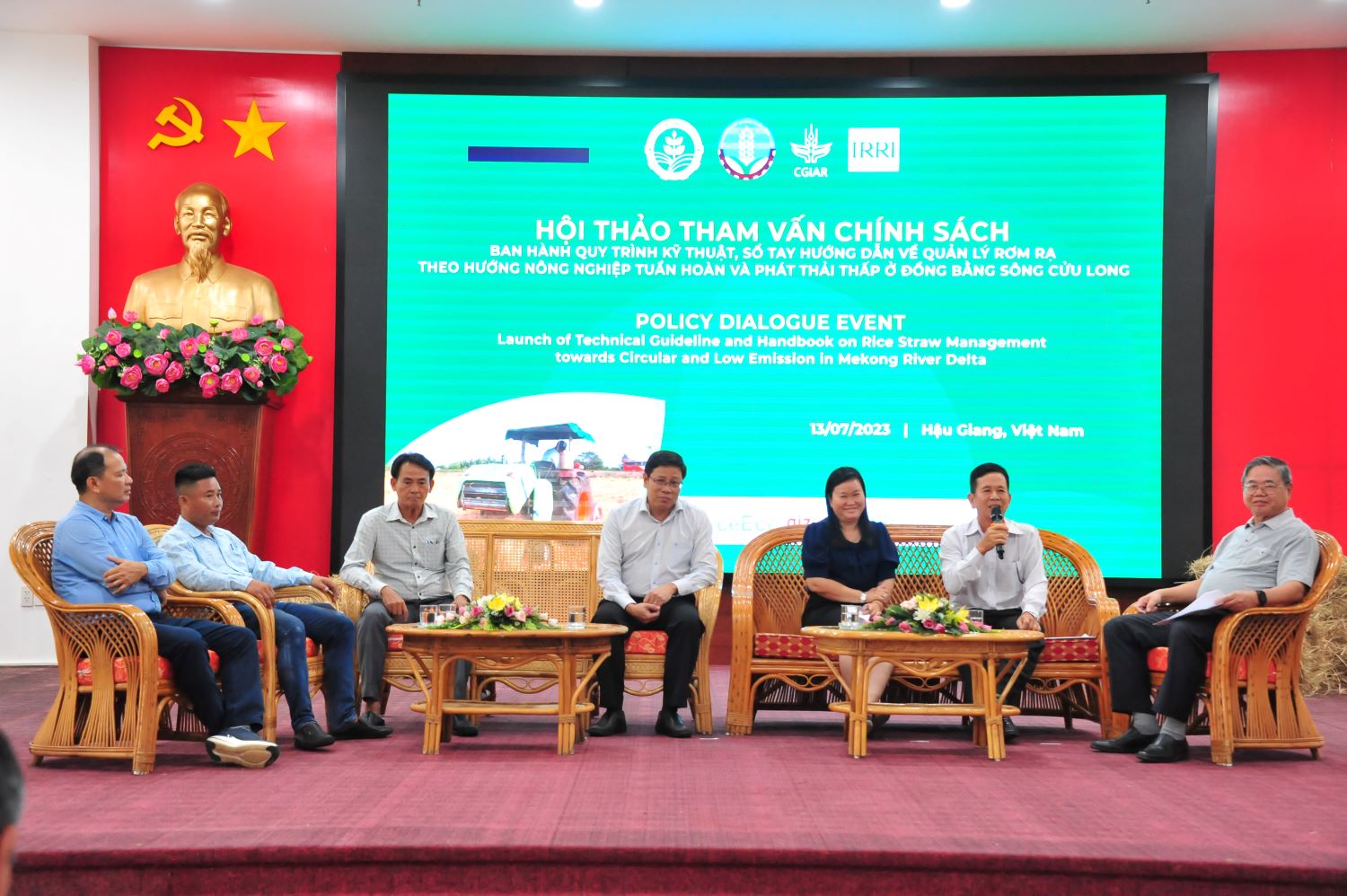Vietnam’s Department of Crop Production (DCP)-Ministry of Agriculture and Rural Development (MARD) and the International Rice Research Institute (IRRI) successfully developed a technical guideline on rice straw management for circular and low-emission agriculture. Through DCP Decision No. 248, the guideline will be implemented in the whole Mekong River Delta (MRD) Region, covering the protocols for rice straw collection, treatment of rice straw in the field, and utilization and processing of collected straw.
In the event held in Hau Giang Province, officials from MARD and MRD provinces, experts from IRRI, and representatives of farmers and other relevant stakeholder groups attended the launching of the technical guideline and the supporting publication developed by IRRI and DCP titled ‘Handbook on Rice Straw Management towards Circular and Low Emission Agriculture in Mekong River Delta’.

In his opening remarks, Dr. Nguyen Nhu Cuong, director of DCP, shared the advancements and achievements of the rice sector in MRD. He stressed that in recent years the focus was on cropping and harvesting and little attention was given to processing agricultural waste such as rice straw. He highlighted that “the annual rice production of 24 million tons in MRD has equally produced 24 million tons of rice straw.”
With the official publication of the technical guidelines, Dr. Cuong proudly shared that the MRD rice sector has now a blueprint for harnessing rice straw to improve productivity and increase income and at the same time contribute to greenhouse gas mitigation and environmental protection. He added that these efforts are intended to contribute to the Vietnam government’s proposal for the “Sustainable Development of One Million Hectares of Specialized High Quality and Low Carbon Rice Production Areas under the Green Growth Agenda in the Mekong Delta Region up to 2030”.

On behalf of IRRI, Dr. Cao Duc Phat, chair of the IRRI Board of Trustees, expressed his gratitude to the editorial board for putting up the technical guidelines covering topics ranging from straw management technology and guidance on collection, treatment, and use of straw up to the economic and environmental evaluation of straw management. As the former minister of MARD, he encouraged his colleagues to put more strategic and aggressive efforts in the technical, policy, and field implementation aspects to achieve the goals of supporting farmers to improve their livelihoods and the government to fulfill its commitments to global conventions.
In the introduction of the publication, Dr. Nguyen Van Hung, senior scientist and project lead on straw management at IRRI, highlighted that the manual provides decision-makers and farmers with scientific evidence and scalable models that promote a “balance between productivity and environmental consciousness”. He also added that the manual was designed to be highly visual for easy reading, making it understandable and useable for local farmers.

In his presentation, Dr. Le Thanh Tung, Deputy Director for the Southern region of DCP, shared some action points for the effective implementation of the guideline and effective use of the manual. He requested MARD and IRRI to work together in conducting more communication and knowledge-sharing activities related to rice straw management. He asked, “all relevant sectors in the rice value chain to be involved in promoting synergy to accelerate the process of effective implementation of the guideline.” He reminded everyone that “when we think of rice, we should also think of rice straw” to make rice production in MRD more sustainable and environmentally friendly.
Also part of the event, two round table discussions were conducted to discuss the policy and international support on rice straw management for the proposed 1M ha high-quality rice initiative and the sustainable solutions and local stakeholders’ commitment to rice straw management towards sustainable agriculture and low emission.

This work is part of the GIZ-funded Promoting rice straw innovations project, the Mekong-Republic of Korea Cooperation Fund-supported Rice Straw-based Circular Economy (RiceEco) project, and the CGIAR Initiative on Asian Mega-Deltas.

